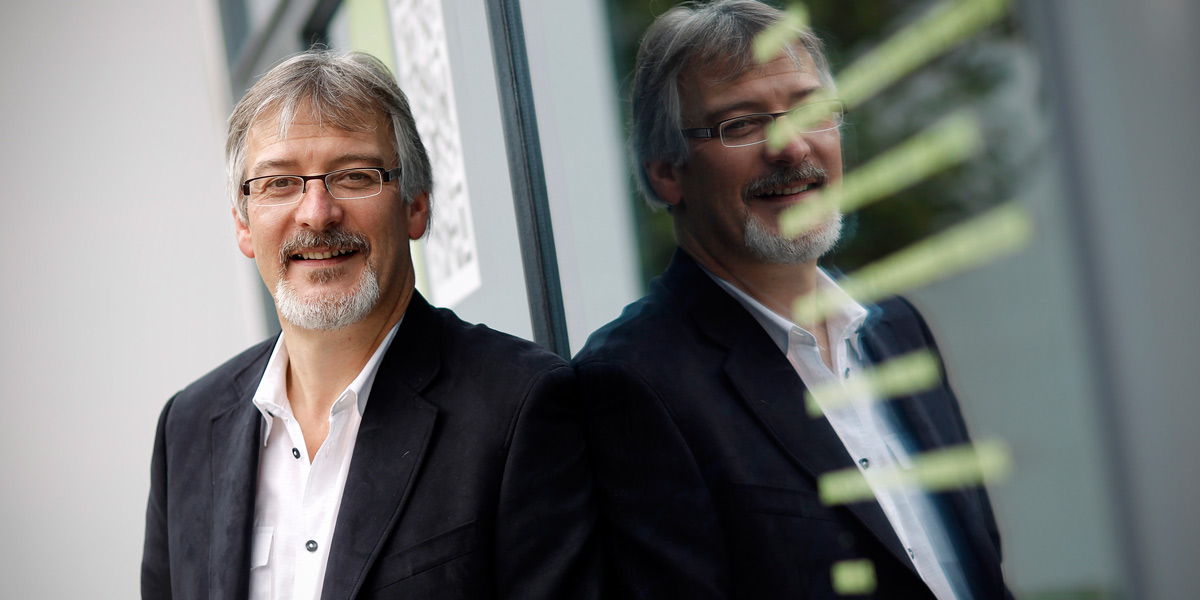
Dr Christian Vélot reports on an international conference on the assessment of GMOs and pesticides and calls for a new type of participatory research
An international conference on “Assessment and Regulation of GMOs and Pesticides” was held in France at the Orsay Scientific Centre (University of Paris-Sud) on 12 and 13 November 2015.
This conference, open to civil society and with French/English simultaneous translation, was organized as part of a “PICRI” project (Partnership between Institutions and Citizens for Research and Innovation[1]), funded by the Île-de-France Region. This project focuses on the study of the “substantial equivalence” principle, which has been used as the basis to allow the commercial approval of all agricultural GMOs cultivated across the world. This project is managed collaboratively between University Paris-Sud and two associations: Générations Futures and the Committee for Research and Independent Information on Genetic Engineering (CRIIGEN).
The international dimension of the conference was not only due to the panel of speakers, but also to those who attended. Among the 140 participants, many came from different countries (from Europe, but also from America and Africa).
According to the spirit of participatory research, this conference allowed the creation of a bridge between academic research and the “scientific third sector” (citizens, associations, NGOs), with presentations of experimental scientific data, made accessible to the general public, as well as round tables gathering civil society stakeholders. Both were followed by long interactions with the public. This spirit was also the reason why we chose to organize this conference at the Orsay Scientific Center: because companies are allowed to sit on boards of directors in universities, it was important for my colleagues and myself, concerned by the democratization of science, to offer the opportunity for citizens to penetrate inside the walls of the University.
Together with results from Brazilian and Norwegian research groups, some of the results of the PICRI project (in the process of publication) questioned the relevance of the substantial equivalence principle, especially when used to approve the commercialization of herbicide-tolerant GM crops.
The second scientific session offered a state-of-the-art review of experimental data showing the insufficiencies of regulatory toxicity tests of GMOs and pesticides. It was emphasized that the duration of feeding trials is insufficient to detect potential chronic toxic effects, and that contamination of laboratory rodent diets by toxic environmental pollutants is a confounding factor in regulatory tests.
Some of the results presented at this conference showed that commercial formulations of pesticides are always more toxic than their so-called “active principles”. Yet the latter are tested alone to calculate safety thresholds, even if they are never used in isolation, but always mixed with toxic adjuvants.
Last but not least, it was explained that regulatory tests are unable to detect endocrine disrupting effects, a common toxic mechanism shared by many pesticides. During the third scientific session, the panel of speakers showed detrimental effects of pesticides and GMOs on soil ecosystems, for example, on rhizosphere microflora and earthworms, and on food microorganisms.
Round tables allowed exchanges on various models of participatory research and highlighted the need to involve civil society in research programmes and in the choice of major research directions. The regulation of pesticides and GMOs (including those resulting from the use of new genetic engineering technologies other than transgenesis) at national and European levels was also widely discussed. A particular emphasis was on the question of data transparency, conflicts of interests in assessment committees, and the responsibility of experts and policy makers. Finally, a farmer, an agronomist, a physician and a company manager producing flour and animal feed explained and exchanged their views on the question of agricultural sustainability and food choices in the future.
These two days of exchanges where multiple participants from different backgrounds acted as a unified collective intelligence were particularly rich and intense. They confirmed the need to open up science to the public, not only to share results, but also to build on each other’s knowledge. There are professional scientists – the researchers – and professional politicians – some of them elected officials. But the scientific approach, like political action, belongs to everyone. It’s time to move towards a new science, considering the “substantial equivalence” between professional scientists and citizens.
Notes
1. Research program set up by the Region Ile-de-France, under the leadership of Foundation Citizen Science
Dr Christian Vélot (pictured above) is scientific coordinator of the conference and of the “PICRI” project on substantial equivalence. He is a molecular geneticist at the University of Paris-Sud, France.










